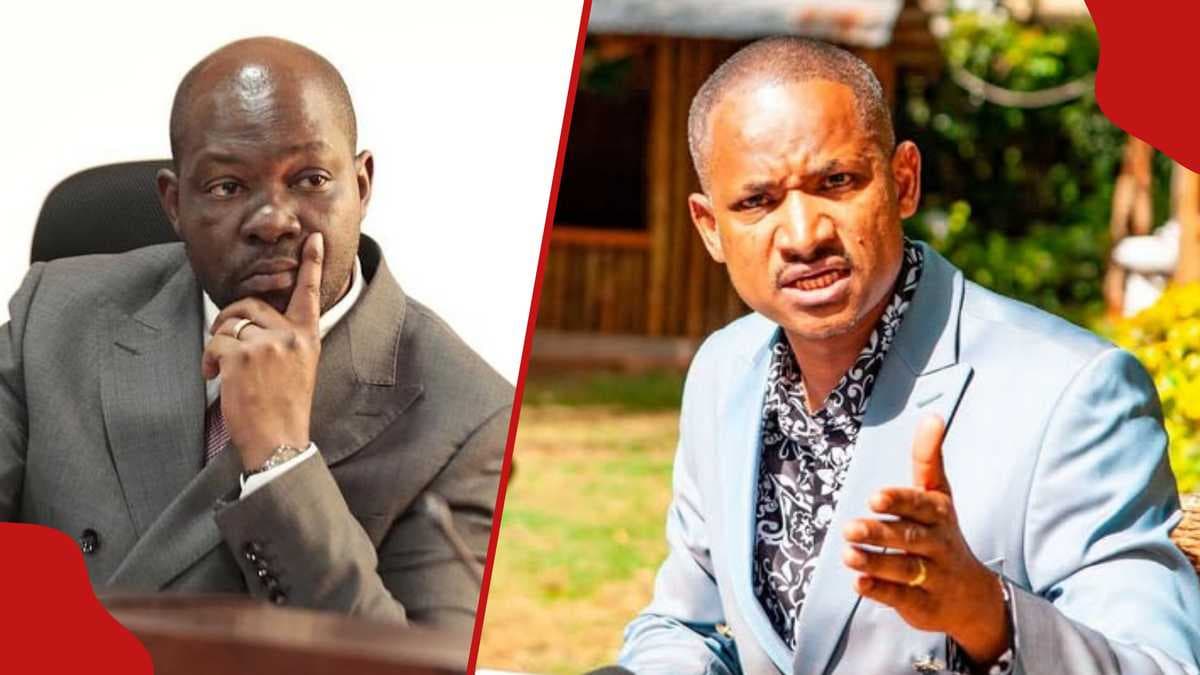We're loading the full news article for you. This includes the article content, images, author information, and related articles.
A public dispute has erupted between two prominent MPs over the rightful credit for infrastructure development in Nairobi, raising questions about the roles of national agencies versus constituency-level initiatives in Kenya.

A political feud has ignited between Embakasi East Member of Parliament Babu Owino and Saboti MP Caleb Amisi over the attribution of several road construction projects within the Embakasi East constituency. The disagreement brings to the forefront a persistent national debate on the roles and responsibilities of legislators, the National Government Constituency Development Fund (NG-CDF), and national agencies in local development.
The controversy began on Monday, October 27, 2025, when Amisi, during an appearance on the Obinna TV show, asserted that the roadworks being showcased by Owino were not his initiatives. Instead, Amisi claimed the projects fall under the mandate of the Kenya Urban Roads Authority (KURA), a national government agency responsible for the development and maintenance of all urban road networks across Nairobi and other cities. "That is not Babu's work. It is the work of KURA that covers the whole of Nairobi," Amisi stated, suggesting that Owino was merely publicizing ongoing government work that other MPs were not.
In a sharp rebuttal on Wednesday, October 29, 2025, Babu Owino dismissed the allegations, labeling his colleague a "bitter soul." Owino challenged the logic of Amisi's claims, questioning why the national government would selectively develop his constituency while neglecting others, including Amisi's own Saboti constituency. "If the national government was doing roads in Embakasi East as Caleb is claiming, how come the same national government is not doing roads in his constituency or other constituencies?" Owino posed. He further argued that all national government projects are typically publicized officially, and no such announcements had been made for the specific roads in his constituency.
The dispute highlights the often-blurred lines between different development vehicles in Kenya. KURA's mandate, as a state corporation under the Ministry of Roads and Transport, is to manage, develop, rehabilitate, and maintain the urban road network. Its projects are funded directly from the exchequer and are part of the national government's infrastructure agenda.
Conversely, the NG-CDF is a fund appropriated by the National Assembly to be used for community-based projects at the constituency level. While the fund has been instrumental in grassroots development, particularly in education and security sectors through the construction of schools and police posts, its constitutionality has been a subject of legal battles. Courts have repeatedly ruled against the fund, citing violations of the principles of separation of powers and devolution, as it involves legislators in executive functions. Despite this, the fund continues to operate, with a recent High Court ruling extending its existence until June 2026 to allow for the completion of ongoing projects.
Owino, defending his record, pointed to his consistent recognition as a top-performing MP as evidence of his effective use of available resources for development, separate from national government interventions. "Babu Owino is an extraordinary leader... there's a reason why Babu Owino was ranked as the best member of parliament in Kenya now for two consecutive times," he stated.
This public spat is not merely about infrastructure but also touches on political accountability and the strategies MPs use to demonstrate value to their constituents. For voters, discerning whether a new road, school, or water project is the result of their MP's lobbying, effective NG-CDF management, or a standard national government program can be challenging. This ambiguity allows for the politicization of development, where credit is claimed for projects regardless of their funding source.
The disagreement between Owino and Amisi, who were previously seen as political allies, also signals potential shifts in political alignments. Owino advised Amisi to focus on serving his own constituents rather than engaging in what he termed as petty rivalry. "Heavy is the head that wears a crown. I want to tell my brother to continue working for his people, not to be bitter, but to be better," Owino added.
As the debate continues, it underscores the need for greater transparency from both national agencies like KURA and constituency-level committees managing the NG-CDF. Clear project labeling, public access to funding information, and explicit communication on the roles of different government entities are crucial for ensuring that citizens can accurately assess the performance of their elected representatives and hold the appropriate bodies accountable for local development. FURTHER INVESTIGATION REQUIRED to independently verify the funding source of the specific road projects under dispute in Embakasi East.
Keep the conversation in one place—threads here stay linked to the story and in the forums.
Sign in to start a discussion
Start a conversation about this story and keep it linked here.
Other hot threads
E-sports and Gaming Community in Kenya
Active 9 months ago
The Role of Technology in Modern Agriculture (AgriTech)
Active 9 months ago
Popular Recreational Activities Across Counties
Active 9 months ago
Investing in Youth Sports Development Programs
Active 9 months ago
Key figures and persons of interest featured in this article